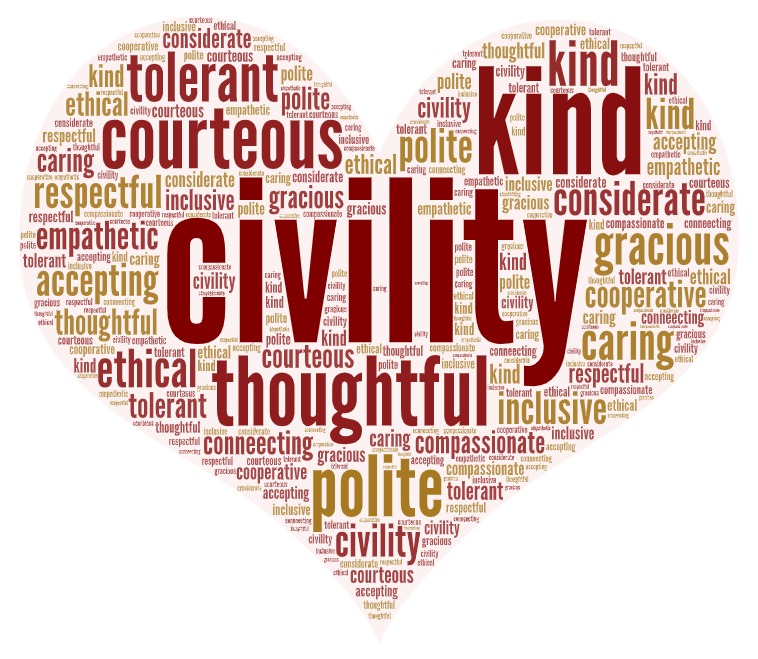Demonstrating civility means being thoughtful, courteous, polite and showing regard for others. I believe there has been a slow but significant reduction in civility over the past few years. It is almost as if rudeness is becoming the norm.
An example occurred about a week ago when my friend and I were out walking near my home. A woman came toward us and as she walked by snarled, “move over!” We were wearing masks, and on a path with lots of room. My friend and I agreed that while she could have been feeling “COVID cranky,” her tone was uncalled for, disrespectful, and left both of us feeling upset.
What happens in a culture when decency and respect for one another diminishes and incivility reigns in its place? Many people experiencing incivility respond in a negative way, and in some cases overtly retaliate. The number of hate incidents are on the rise, evident in daily newscasts. It has moved beyond unusual to commonplace. That is a frightening shift in our society.
In a Harvard Business Review article on the impact of incivility at work, a poll of 800 managers and employees in 17 industries, found that of workers who had been on the receiving end of incivility:
- 48% intentionally decreased their work effort.
- 47% intentionally decreased the time spent at work.
- 38% intentionally decreased the quality of their work.
- 80% lost work time worrying about the incident.
- 63% lost work time avoiding the offender.
- 66% said that their performance declined.
- 78% said that their commitment to the organization declined.
- 25% admitted to taking their frustration out on customers.
- 12% said that they left their job because of the uncivil treatment.
Incivility damages and undermines all relationships¾workplace, personal and community. A civil society combined with the stability of the state and the viability of the market, support the functioning of democratic societies.
The responsibility for ensuring this does not happen, comes down to the individual. What can I, indeed what must I do to help make a difference? My walking partner, a dear friend had these suggestions for how each one of us can actively practice the habit of being civil:
- Rise above the behaviour, consciously resist the temptation to respond in kind,
- Be empathetic; stand in the shoes of the other without judgment,
- Respect the need for individuals to feel safe in their world,
- Resist the expectation that I can change the behaviour of others,
- Remove myself from the setting where I feel uncomfortable,
- Role model being a consistent force for good, kindness and civility,
- Return non-love behaviour with grace and love.
The erosion of civility undermines democratic freedom. I do not want my grandchildren to inherit that kind of world .
Love, Kathleen





